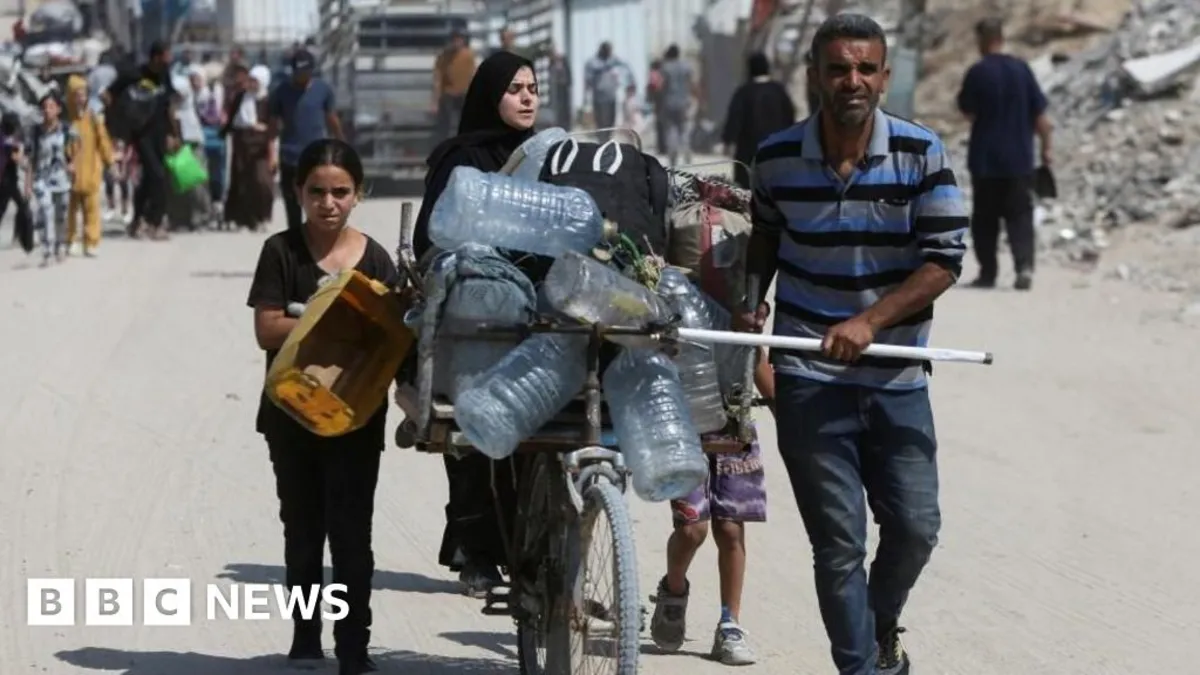
Aid distribution centres in Gaza will be closed for one day on Wednesday due to warnings from the Israeli military that roads leading to these sites will be classified as combat zones. This decision comes amidst escalating tensions and violence in the region, which has drawn international attention.
The Gaza Humanitarian Foundation (GHF), a controversial aid network supported by the US and Israel, announced the temporary closure of its sites for necessary updates, organization, and efficiency improvements. The GHF began operations just last week but is now halting activities in light of the situation. In a separate statement, the Israel Defense Forces (IDF) confirmed that civilians would be barred from entering the distribution centres or using the roads leading to them.
Tragically, overnight on Tuesday, at least 27 Palestinians were reported killed by Israeli fire near a distribution centre, as per reports from the Hamas-run Civil Defence Agency. This incident marks the third deadly occurrence in as many days along routes leading to GHF sites. The IDF claimed that their forces fired shots in response to individuals who deviated from the designated access paths.
In the aftermath of Tuesday's violence, Atef Al-Hout, the director of Nasser Hospital in Khan Younis, revealed that numerous injured civilians were arriving with gunshot wounds, having been shot while waiting for aid in western Rafa. A spokesperson for the Civil Defence Agency, Mahmoud Basal, reported that civilians were targeted by Israeli tanks, quadcopter drones, and helicopters near the aid distribution locations.
A foreign medic working in the area described the situation as “total carnage,” noting an overwhelming number of casualties. The IDF, however, contended that they were not obstructing Gazan civilians from accessing humanitarian aid distribution sites. The GHF has announced plans to resume aid distribution on Thursday, pending the resolution of the current tensions.
In light of the ongoing humanitarian crisis, UN Secretary General António Guterres has called for an immediate and independent investigation into the recent events. Stéphane Dujarric, a spokesperson for Guterres, expressed concerns over the lack of clarity regarding the GHF and the accountability of armed individuals around the distribution points. He remarked that “no one knows who they are or who they are accountable for.”
As the UN warns that over two million people in Gaza are at risk of starvation due to an 11-week Israeli ban on food and other aid shipments, the GHF aims to establish a new aid distribution model. This model seeks to replace the UN-led distribution network, which has faced accusations from Israel regarding its failure to prevent supplies from being hijacked by Hamas—an assertion the UN has denied.
Under the GHF's new distribution system, Gazans must collect supplies from a limited number of centres located in areas under Israeli military control, staffed by armed American contractors. Critics have condemned this model, stating it forces individuals to walk long distances to access aid and carry heavy boxes weighing up to 20 kg back to their homes or shelters.
Stéphane Dujarric criticized the GHF's approach, calling it a demonstration of how not to conduct humanitarian aid, emphasizing that it places lives at risk by requiring people to undertake lengthy trips in a militarized area. The head of the UN agency for Palestinian refugees (UNRWA), Philippe Lazzarini, echoed these sentiments, labeling the current aid distribution model as a “death trap.”
In a related development, Reverend Dr. Johnnie Moore, a prominent evangelical pastor and supporter of former US President Donald Trump, was named the new head of the GHF. His appointment follows the resignation of Jake Wood, the GHF's first chief, who criticized the current aid distribution model.
The backdrop to these developments is Israel's military campaign in Gaza, which began in response to Hamas' cross-border attack on October 7, 2023. This assault resulted in approximately 1,200 deaths and the abduction of 251 others. Since then, the Gaza Health Ministry reports that over 54,470 individuals have lost their lives, with 4,201 fatalities occurring since Israel resumed its offensive on March 18.